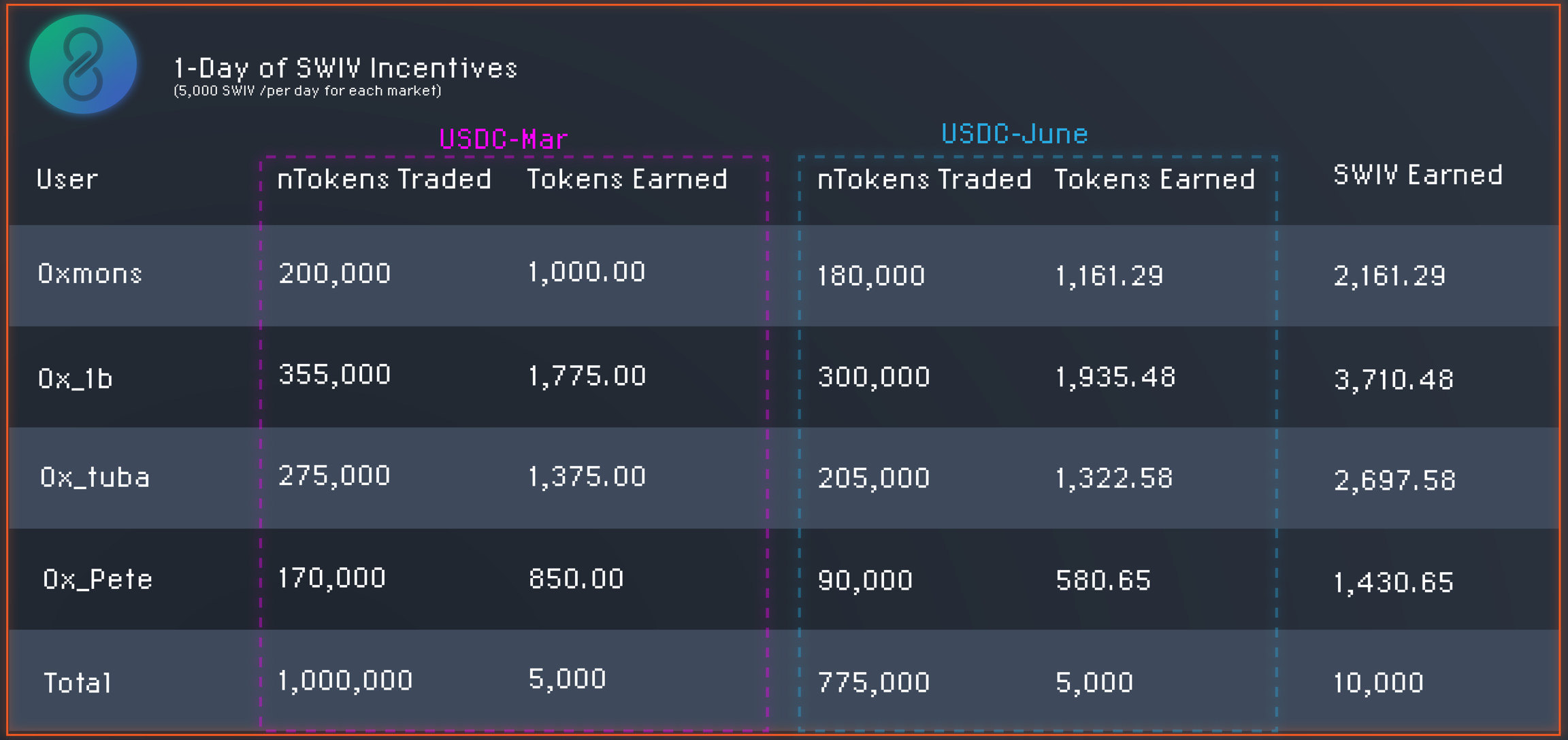Incentives
A description of the incentivization involved in the Swivel protocol and the SSM
In order to ensure the sustainability and long term decentralization of the Swivel protocol, SWIV tokens are utilized to incentivize positive activity within our ecosystem as a mechanism for protocol homeostasis.
Orderbook Incentives
In the context of an orderbook, incentivization can become quite complicated.
In our case we attempt to identify the most effective liquidity placed on our orderbook through tracking the orders filled and excluding most wash trading through parameterization.
Current Orderbook Incentive Distributions
Each market has a configurable amount of SWIV tokens (currently 2,500) allocated to it on a daily basis and calculated at 23:55 UTC.
Once a day, cumulative volume is calculated, and users are rewarded proportionally based on the amount of YT liquidity they provided to trades.
These rewards are earned on a daily basis and then distributed every 4 week liquidity incentive epoch.

As shown in the example above, for each market, there are 5,000 SWIV tokens allocated per day.
These tokens are then split proportionally based on the limit orders that have been filled in a given day.
In the example above, 0xmons traded 200,000 of 1,000,000 total YTs that day.
Given they committed 20% of the daily liquidity, 0xmons receives 1,000 SWIV tokens, 20% of the daily allocation.
Swivel Safety Module Incentives
As a mechanic to bootstrap the initial capital base of the Swivel Safety Module, SWIV incentives are allocated to those committing their SWIV/ETH to the SSM.
The calculation of these incentives are similar to our orderbook incentives with the SSM allocated a configurable amount of SWIV tokens for every 24 hour period, calculated at 23:55 UTC.
When calculated, each user's ownership of the SSM results in a proportional allocation of SWIV tokens, which are then distributed on a 4 week epoch.
Current Daily Incentives:
Orderbook: 2500 SWIV / market
SSM: 1250 SWIV
Last updated

